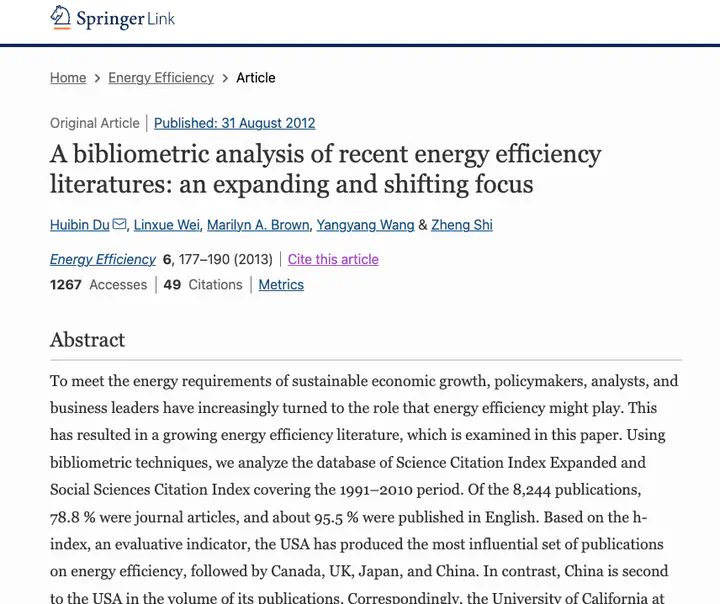A bibliometric analysis of recent energy efficiency literatures: an expanding and shifting focus
 Image credit: Springer
Image credit: SpringerAbstract
To meet the energy requirements of sustainable economic growth, policymakers, analysts, and business leaders have increasingly turned to the role that energy efficiency might play. This has resulted in a growing energy efficiency literature, which is examined in this paper. Using bibliometric techniques, we analyze the database of Science Citation Index Expanded and Social Sciences Citation Index covering the 1991–2010 period. Of the 8,244 publications, 78.8 % were journal articles, and about 95.5 % were published in English. Based on the h-index, an evaluative indicator, the USA has produced the most influential set of publications on energy efficiency, followed by Canada, UK, Japan, and China. In contrast, China is second to the USA in the volume of its publications. Correspondingly, the University of California at Berkeley, Chinese Academy of Sciences, and Tsinghua University were the most productive research organizations. The three most common subjects examined in this body of research were “energy and fuels”, “environmental sciences”, and “electrical and electronic engineering”. Energy Policy has been the most productive journal, and “A water and heat management model for proton-exchange-membrane fuel-cells”, has had the most citations (587 through May 2012). Based on an analysis of article titles and keywords, we conclude that the hotspots of energy efficiency research have been green communications, renewable energy, and energy sustainability; green communications, in particular, has developed rapidly as a focus of energy efficiency publications in recent years.